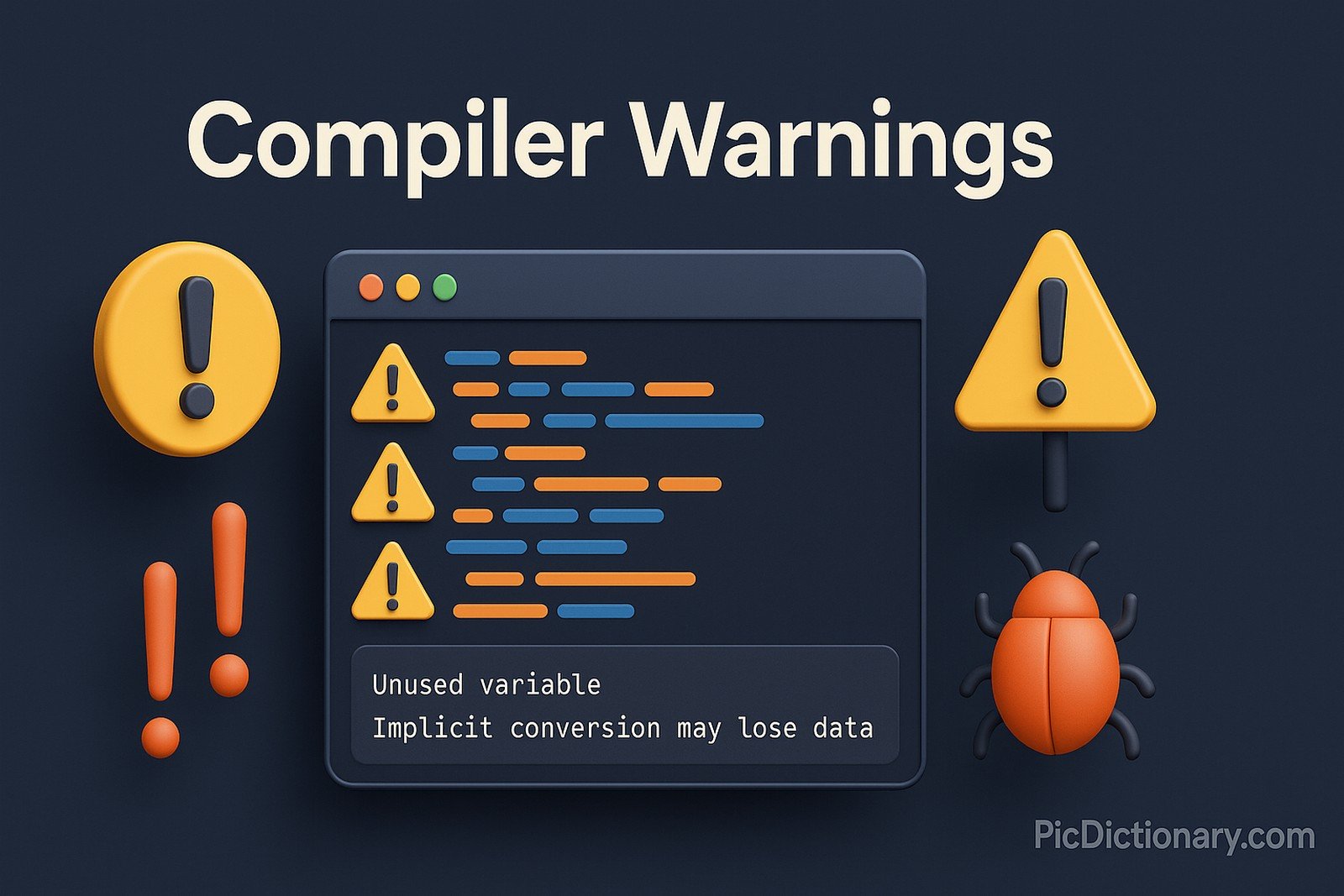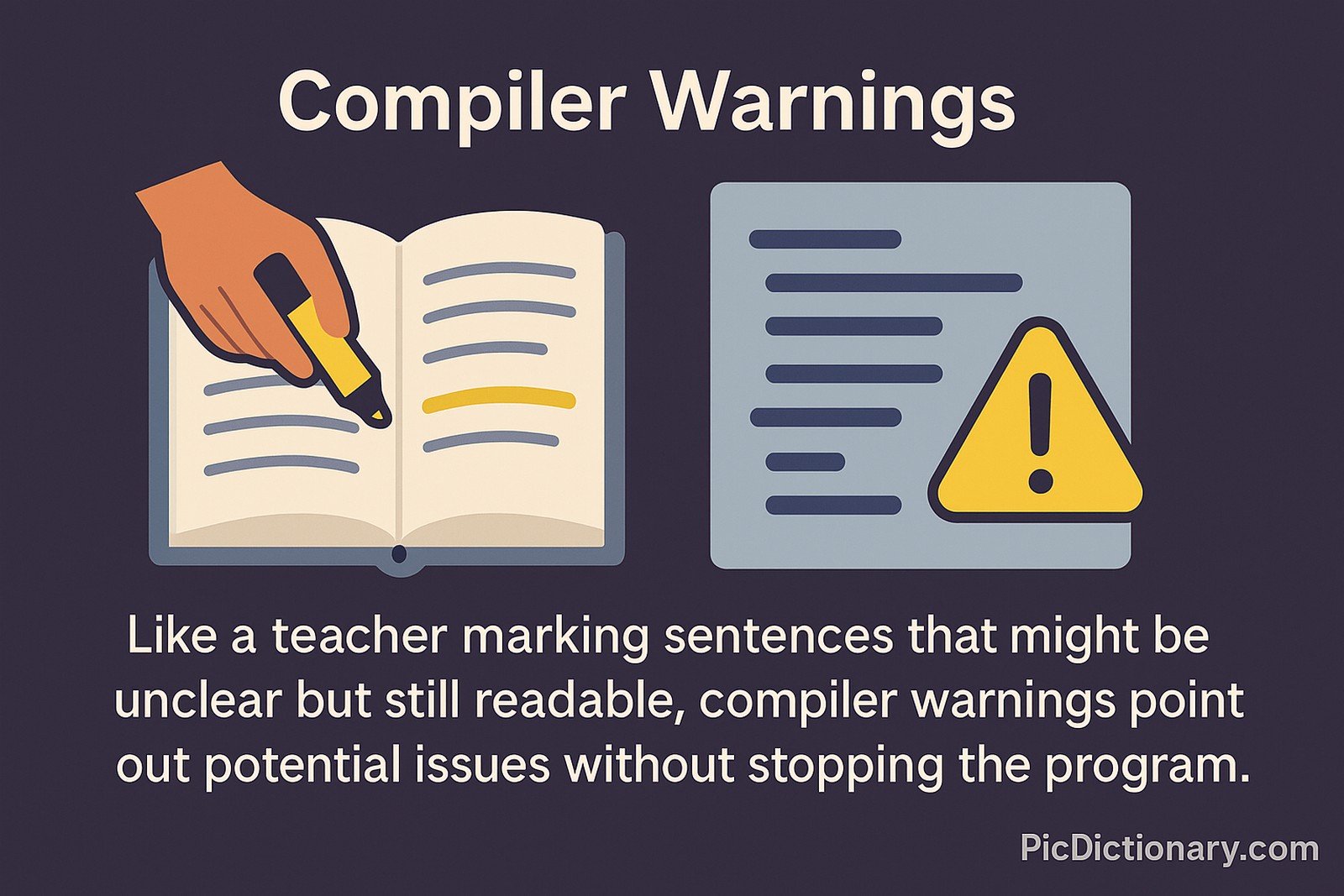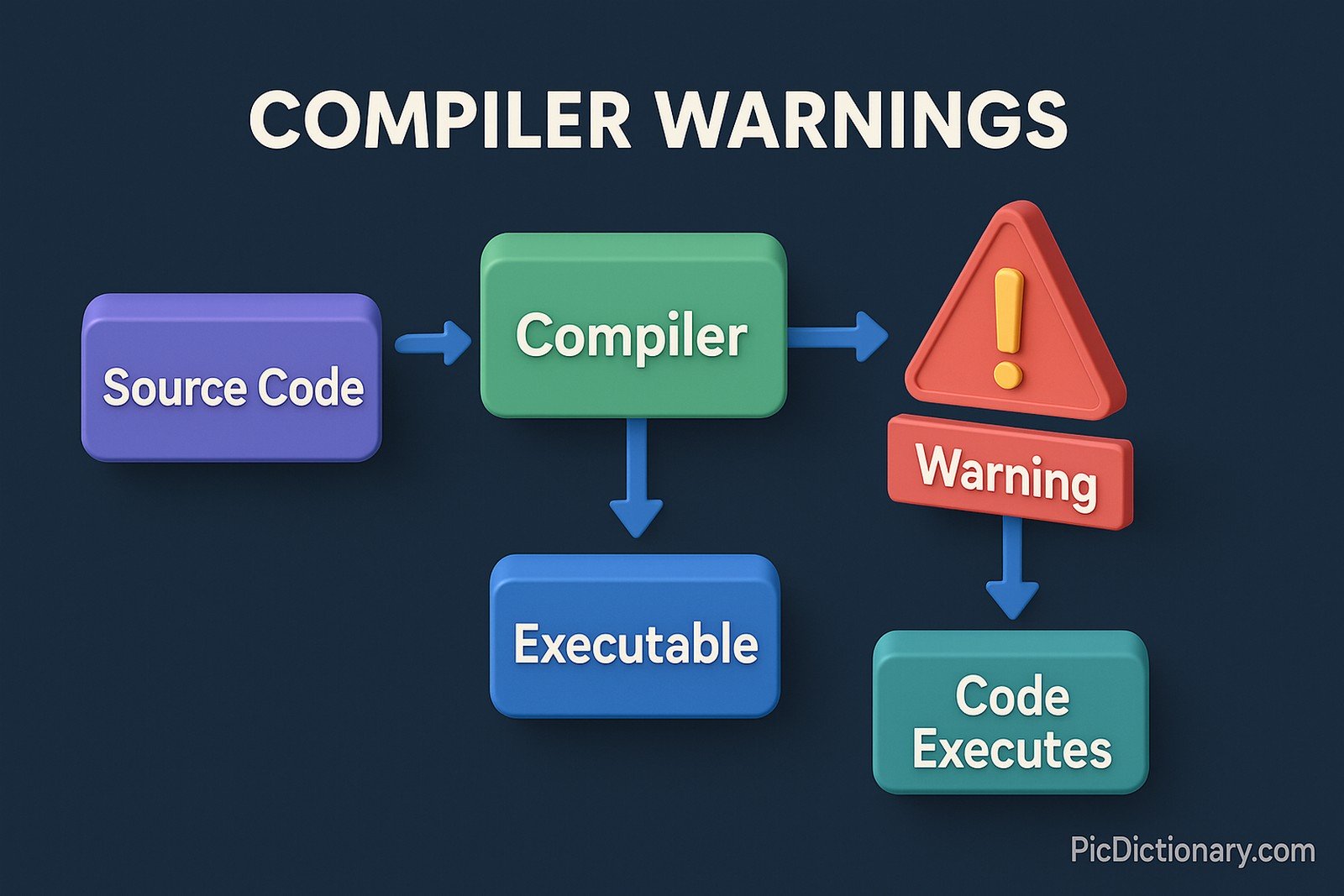Compiler Warnings

Quick Navigation:
- Compiler Warnings Definition
- Compiler Warnings Explained Easy
- Compiler Warnings Origin
- Compiler Warnings Etymology
- Compiler Warnings Usage Trends
- Compiler Warnings Usage
- Compiler Warnings Examples in Context
- Compiler Warnings FAQ
- Compiler Warnings Related Words
Compiler Warnings Definition
Compiler warnings are messages generated by a compiler to alert programmers about potential issues in their code. Unlike errors, warnings do not prevent compilation but indicate possible logic flaws, deprecated syntax, or unintended behaviors that could lead to runtime errors. Common examples include unused variables, implicit type conversions, and uninitialized variables. While the code still compiles with warnings, addressing them improves software reliability and maintainability.
Compiler Warnings Explained Easy
Imagine you're writing a story, and your teacher marks some sentences with a yellow highlighter to show they might be unclear but still readable. Compiler warnings work the same way—they point out things that might be problematic but won’t stop the program from running. Fixing these warnings helps make your code cleaner and safer.
Compiler Warnings Origin
The concept of compiler warnings dates back to early programming languages in the 1960s and 1970s when compilers were designed to provide additional feedback to programmers. As languages evolved, warnings became essential for preventing common mistakes and ensuring better code quality.
Compiler Warnings Etymology
The term “compiler warnings” comes from the word compile, meaning to translate source code into machine code, and warning, meaning an alert or cautionary notice about something potentially problematic.
Compiler Warnings Usage Trends
With the rise of modern development environments and continuous integration systems, the importance of compiler warnings has increased. Many software companies enforce strict warning policies, treating warnings as errors to ensure high-quality code. Advanced compilers now provide sophisticated warning levels, allowing developers to fine-tune their alert settings.
Compiler Warnings Usage
- Formal/Technical Tagging:
- Static Analysis
- Code Quality
- Debugging
- Software Development - Typical Collocations:
- "compiler warning flag"
- "suppress compiler warnings"
- "treat warnings as errors"
- "debugging compiler warnings"
Compiler Warnings Examples in Context
- A compiler warning may alert you when you declare a variable but never use it in your code.
- Some warnings inform you that a function is deprecated and may not work in future updates.
- Implicit type conversion warnings can help prevent unexpected behavior when mixing different data types.
Compiler Warnings FAQ
- What are compiler warnings?
Compiler warnings are messages from the compiler that indicate potential code issues without stopping compilation. - How do compiler warnings differ from errors?
Errors prevent compilation, while warnings indicate potential issues but still allow the program to compile. - Should I ignore compiler warnings?
No, addressing warnings improves code quality and prevents future errors. - Can compiler warnings be disabled?
Yes, but it's generally recommended to fix them rather than suppress them. - Why do some projects treat warnings as errors?
It enforces better coding practices and prevents potential bugs from slipping into production. - What are some common compiler warnings?
Unused variables, implicit type conversions, signed-unsigned mismatches, and deprecated function calls. - How do I fix compiler warnings?
Read the warning message carefully and adjust the code accordingly—often, better coding practices can eliminate warnings. - Are compiler warnings specific to a language?
No, all compiled languages (e.g., C, C++, Java) have compiler warnings, but their nature depends on the language. - Do all compilers produce the same warnings?
No, different compilers have different warning mechanisms and settings. - Can compiler warnings improve performance?
Indirectly, yes. Fixing warnings can lead to optimized, more efficient code.

Compiler Warnings Related Words
- Categories/Topics:
- Static Analysis
- Debugging
- Software Engineering
- Compiler Design
Did you know?
Some software development teams adopt a "zero warnings policy," meaning they ensure all code compiles without any warnings. This practice has helped prevent significant software failures, such as the infamous Ariane 5 rocket failure, where an unhandled compiler warning led to a catastrophic crash.
PicDictionary.com is an online dictionary in pictures. If you have questions or suggestions, please reach out to us on WhatsApp or Twitter.Authors | Arjun Vishnu | @ArjunAndVishnu

I am Vishnu. I like AI, Linux, Single Board Computers, and Cloud Computing. I create the web & video content, and I also write for popular websites.
My younger brother, Arjun handles image & video editing. Together, we run a YouTube Channel that's focused on reviewing gadgets and explaining technology.



Comments powered by CComment